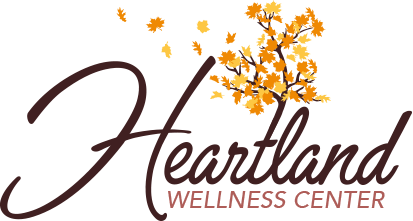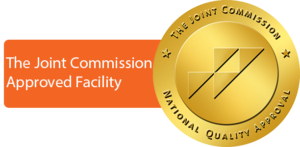Introduction
Recovery from mental health challenges and substance abuse requires dedication, perseverance, and ongoing support. Heartland Wellness Center understands the importance of providing comprehensive care to individuals on their recovery journey. In this blog, we will explore strategies for preventing relapse during the recovery process. These strategies encompass various aspects of life, including self-care, building a support network, identifying triggers, developing coping skills, managing stress, creating a relapse prevention plan, and seeking professional guidance. By implementing these strategies, individuals can strengthen their resilience, maintain long-term recovery, and enhance their overall well-being.
Understanding Relapse
Relapse is defined as a return to substance use or a recurrence of symptoms after a period of recovery. It is crucial to recognize that relapse is not a sign of failure but rather a common challenge on the path to recovery. Relapse can be triggered by various factors, such as stress, social pressure, negative emotions, or environmental cues. Understanding the nature of relapse and its potential triggers is essential for developing effective prevention strategies.
Building a Support Network
A strong support network plays a vital role in preventing relapse. Surrounding oneself with individuals who understand and support the recovery journey is invaluable. This network can include friends, family members, support groups, and mental health professionals. Engaging in regular therapy or counseling sessions provides an opportunity to discuss challenges, develop coping skills, and receive guidance from trained professionals.
Support groups, such as Alcoholics Anonymous (AA) or Narcotics Anonymous (NA), offer a community of individuals with similar experiences who can provide encouragement and share relapse prevention strategies. Heartland Wellness Center recognizes the importance of support groups and offers a range of group therapy programs tailored to specific needs. These groups create a safe space for individuals to connect, share their stories, and learn from one another’s experiences.
Identifying and Managing Triggers
Identifying and managing triggers is a crucial aspect of relapse prevention. Triggers are situations, people, places, or emotions that can lead to a desire to use substances or engage in unhealthy behaviors. It is essential to identify personal triggers and develop strategies to minimize their impact. This may involve avoiding certain environments or individuals that can be triggering or developing coping mechanisms to navigate challenging situations.
Developing effective communication skills can also be valuable in managing triggers and preventing relapse. Learning assertiveness techniques and setting boundaries can help individuals navigate situations that may put their recovery at risk.
Stress management is key in preventing relapse, as stress can significantly impact one’s ability to maintain recovery. Engaging in stress-reduction techniques, such as exercise, mindfulness practices, or relaxation exercises, can provide healthy outlets for managing stress. Heartland Wellness Center offers stress management workshops and therapeutic activities to support individuals in developing effective stress management strategies.
Developing Coping Skills
Building a repertoire of healthy coping skills is essential in preventing relapse. This includes developing strategies for managing negative emotions, stress, and cravings. Cognitive-behavioral therapy (CBT) techniques can be particularly effective in identifying and challenging negative thought patterns that can contribute to relapse. Heartland Wellness Center offers CBT sessions and other evidence-based therapies to support individuals in developing healthy coping mechanisms.
Engaging in self-care activities is crucial for maintaining emotional well-being and preventing relapse. This can involve prioritizing sleep, engaging in regular exercise, practicing relaxation techniques, nurturing healthy relationships, and pursuing activities that bring joy and fulfillment. Taking care of one’s physical, mental, and emotional health can create a solid foundation for recovery.
Creating a Relapse Prevention Plan
A relapse prevention plan serves as a roadmap for maintaining recovery. This plan typically includes strategies for identifying triggers, coping skills to manage cravings and stress, contact information for support individuals or groups, and steps to take in case of a relapse. Heartland Wellness Center assists individuals in creating personalized relapse prevention plans tailored to their specific needs, goals, and challenges.
In addition to identifying triggers and developing coping skills, it is important to have a plan for high-risk situations. These situations may include attending social events where substance use is prevalent or encountering challenging emotions. By anticipating and preparing for such situations, individuals can proactively implement strategies to prevent relapse. This might involve bringing a support person to events, having a plan to leave if uncomfortable, or practicing healthy coping mechanisms beforehand.
Regular self-assessment is crucial in relapse prevention. Taking the time to reflect on emotions, triggers, and overall well-being allows individuals to address potential vulnerabilities before they escalate. This self-awareness helps in recognizing warning signs and implementing appropriate coping strategies promptly.
Seeking professional guidance is essential throughout the recovery journey. Mental health professionals provide invaluable support, guidance, and evidence-based interventions to help individuals navigate the challenges of recovery. They can help individuals explore underlying issues, develop healthy coping strategies, and address any co-occurring mental health conditions. Heartland Wellness Center offers a range of therapeutic services, including individual counseling, group therapy, and specialized programs, to support individuals in their recovery and relapse prevention efforts.
Recovery is a lifelong journey, and it is important to celebrate milestones and acknowledge progress along the way. Recognizing and celebrating achievements reinforces a sense of accomplishment, boosts motivation, and provides a reminder of the progress made. Heartland Wellness Center encourages individuals to celebrate both small and significant victories, as each step forward is a testament to strength and resilience.
It is essential to remember that relapse does not mean failure. If a relapse does occur, it is crucial to seek support immediately, re-evaluate the relapse prevention plan, and adjust strategies as necessary. Relapse can be a learning opportunity and a chance to refine coping skills and strategies for long-term recovery.
Final Thoughts
In conclusion, preventing relapse during the recovery process requires a multifaceted approach. By building a strong support network, identifying and managing triggers, developing coping skills, creating a relapse prevention plan, and seeking professional guidance, individuals can significantly reduce the risk of relapse and maintain long-term recovery. Heartland Wellness Center is committed to providing comprehensive support and resources to individuals on their journey towards recovery, empowering them to lead fulfilling and resilient lives.



